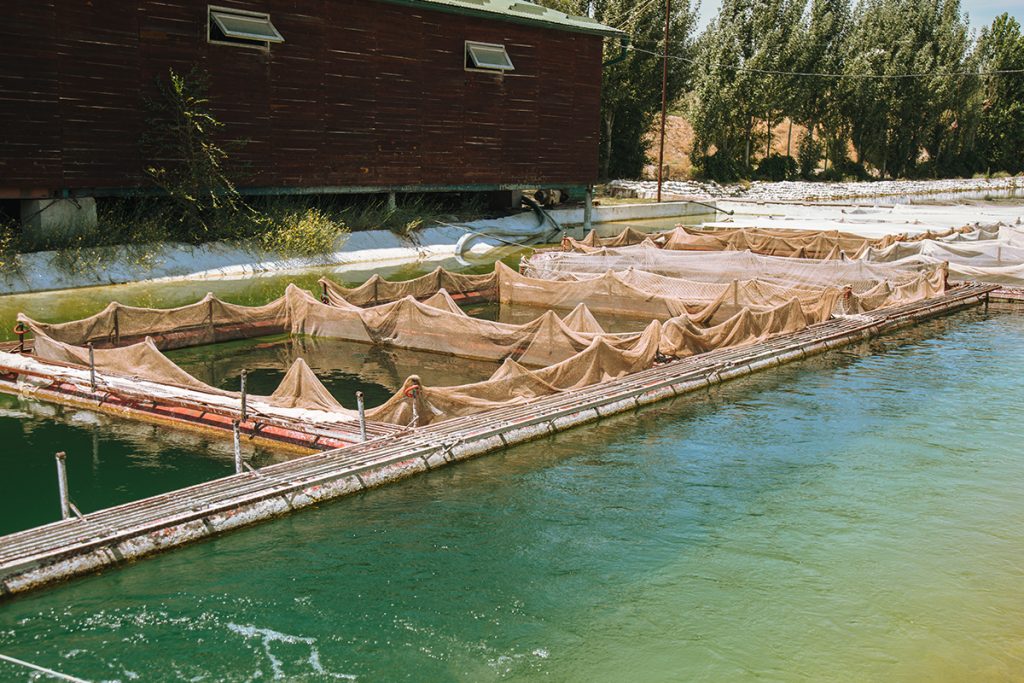The seafood market is on the rise, but the stocks available from the ocean are dwindling. This has led to the rise of aquaculture as a sustainable solution for increasing demand. With an LLC for a fish farm, one can gain a substantial income while contributing towards food security. Here, we will cover everything about Fish Farm LLC, from planning and legal requirements to marketing and sustainability.
Basics on the Fish Farm LLC
Aquaculture is the breeding and cultivation of seafood under controlled conditions. This sector has evolved to use more modern methods and ecological practices to improve efficiency. Some of the driving factors of aquaculture growth include overfishing, the demand for alternative protein sources, and improved farming practices.
Fish Farming Business Model Selection
Choosing the right structure is one of the most important decisions. Some of the more common models are:
Full-Cycle Production: Complete ownership of the process from breeding to harvesting.
Hatchery Operations: Producing and selling juvenile fish.
Grow-Out Farms: Purchasing juvenile fish and growing them to full size.
Integrated Farming: Fish farming along with other agriculture.
Every model has its perks and challenges; what is chosen depends on the available resources, expertise level and what is in demand in the market.
Legal Considerations of Fish Farm LLC
Management and operation of Fish Farm LLC have certain legal and regulatory obligations that must be fulfilled:
Business Registration: Register your LLC with state and local authorities.
Permits and Licenses: Acquire permits for the water usage, environmental scope, fish welfare, etc.
Zoning Laws: Check if the place you want to set up is within the boundaries set by the local authority for aquaculture zoning.
Environmental Regulations: Requirements for waste disposal, water used in fish farming, and other ecosystems are thoroughly checked at this point.
Legal council along with local government officials can help to navigate through these requirements because they can be quite convoluted.
Site Selection and Infrastructure
Deciding on the right site also has operational cost efficiency implications, especially when it comes to fish health:
Water Quality: Water must be free from any contaminants and clean for respiration purposes.
Soil Type: The land has to possess the right geophysical attributes for ponds to hold water /without leakage.
Accessibility: The location has to be near numerous markets, suppliers, and transport hubs in order to increase ease of logistical movement.
Infrastructure: There has to be land available for the installation of ponds, tanks, cold stores, nurse’s residential building, and other structures.
Selecting Fish Species
Properly designed structure for aquaculture often lead to productive farming of fish. Construction of recirculating aquaculture systems (RAS) or flow-through systems make farming more effective and economical along with other benefits. Choosing of appropriate species has to keep in consideration the environmental factors along with the market demand and the farming capabilities.
Expanded Strategies Used to Market Fish Species
- Tilapia: Notable due to its fast growth rate and highly adaptive nature.
- Catfish: Widely accepted across many markets and thrives under different conditions.
- Salmon: High market value but requires specific environmental conditions.
- Carp: Highly consumed and relatively simple to cultivate.
It is critical to study local market demand and environmental viability before species selection.
Financial Strategy and Investment Evaluation
Establishing a Fish Farm LLC requires an enormous financial investment:
Initial Expenses: Estimated costs include land purchase, building construction, requisite equipment, and purchasing the initial stock.
Operational Expenses: Covers feeding, paying employees, upkeep, and utility services.
Marketing and Sales Action Plan
Researching your desired audience boosts sales as well as customer loyalty. Fish farming relies on ecological and technological innovations, as well as sustainable practices:
- Environmental Responsibility: Develop waste management techniques and water reclamation systems eco-friendly to the surroundings.
- Technological use: Automated feeders are utilized alongside rest water quality checks and data analytics for efficient operations.
- Certifications: Attain endorsements that confirm the adoption of sustainable, ethical farming practices and marketable farming.
Adopting modern innovations ensures relevance and competitive longevity in the industry.
Managing Risk And Other Challenges
Planning and removing potential risks is paramount for a successful business:
- Disease Outbreaks: Set up Health Monitoring Biosystems (HMBs) along with biosecurity measures.
- Market Variation: Adjust the number of products and target clientele to mitigate the risks of low prices.
- Environmental Threats: From natural disasters, backup measures, and plans like geoengineering for climate issues.
Effective risk management, without a doubt, vulnerability strategies reinforce the unplanned interruptions within the business.
Conclusion
Setting up a Fish Farm LLC could be an effective way to address the worldwide demand for aquaculture and seafood. With strategic planning related to the fish species, farming methods, legal requirements, and marketing strategies, one could achieve a successful, eco-friendly aquaculture business. Innovation combined with sustainability will improve productivity and enduring growth in the seafood industry.
FAQs
1. Is fish farming a profitable business?
When managed well, fish farming can indeed be profitable. Success is aided by proper species selection, efficient fish farming practices, market demand, and cost management.
2. What are the initial costs involved in starting a fish farm?
Costs may differ depending on region; however, they will typically include land, construction of a pond or tank, equipment, fingerlings, feed, and applicable permits.
3. Do I need formal education to start a fish farm?
You do not need a diploma to start a fish farm, but a course in aquaculture, fish biology, and business will help. More importantly, practical experience will go a long way.


